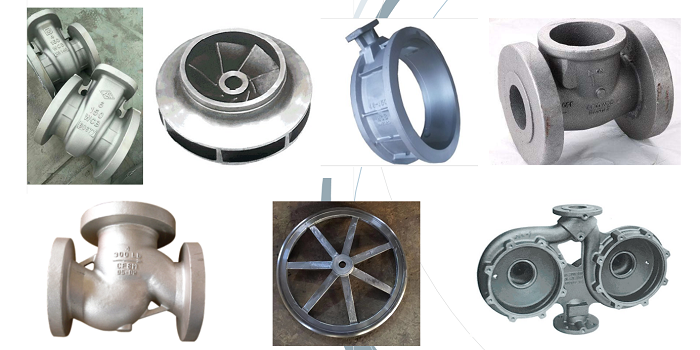Ductile iron casting is a versatile and widely used casting method in industrial manufacturing. This process offers numerous advantages and finds extensive applications across various industries. In this article, we will explore the advantages of ductile iron casting and its diverse applications in industrial manufacturing.

- High Strength and Durability: Ductile iron casting provides exceptional strength and durability, making it suitable for applications that require robust components. It exhibits excellent tensile strength, impact resistance, and fatigue resistance, making it ideal for heavy-duty machinery, automotive parts, and infrastructure components.
- Versatility in Design: Ductile iron casting offers excellent casting fluidity, allowing for intricate and complex designs. It can be cast into various shapes and sizes, providing manufacturers with design flexibility to meet specific requirements. This versatility makes it suitable for a wide range of applications, including engine blocks, gears, valves, and pump components.
- Cost-Effectiveness: Ductile iron casting is a cost-effective casting method compared to other materials like steel. It offers a good balance between cost and performance, making it a preferred choice for manufacturers aiming to optimize production costs without compromising on quality and durability.
- Machinability: Ductile iron has good machinability characteristics, making it easier to shape and finish. It allows for precision machining operations, such as drilling, milling, and tapping, facilitating the production of accurately dimensioned components with tight tolerances.
- Corrosion Resistance: Ductile iron casting can be engineered to provide excellent corrosion resistance by adding alloying elements or using protective coatings. This makes it suitable for applications in corrosive environments, such as marine, chemical processing, and water treatment industries.
- Vibration Damping: Ductile iron exhibits superior vibration damping properties, reducing noise and vibrations generated during operation. This feature makes it desirable for applications where noise reduction and enhanced operational comfort are essential, such as automotive components, machine bases, and industrial equipment.
- Applications in Various Industries: Ductile iron casting finds applications across a wide range of industries. It is extensively used in automotive manufacturing for engine blocks, transmission components, and suspension parts. Other industries that benefit from ductile iron casting include construction, agriculture, mining, energy, and general machinery.
In conclusion, ductile iron casting offers numerous advantages, including high strength, design versatility, cost-effectiveness, and corrosion resistance. Its applications span multiple industries, contributing to the production of durable and reliable components. Manufacturers continue to harness the benefits of ductile iron casting to meet the evolving demands of industrial manufacturing.
